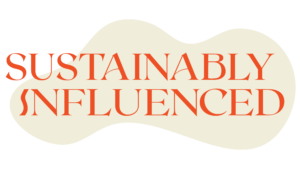What Is An Ethical Brand?
Have you ever sat and wondered what it is that really makes a brand ethical?!
Well in short, an ethical brand operates in a responsible and sustainable manner, taking into account the impact of its business practices on society and the environment. There are a few key principles that define an ethical brand, including transparency, fairness, and accountability.
Transparency is an important principle of an ethical brand, as it means that the company is open and honest about its business practices and the impact it has on society and the environment. This includes being upfront about the materials and methods used to produce products, as well as the conditions under which they are made. Ethical brands should also be transparent about their supply chain and the treatment of workers, and should be willing to share information about their environmental impact. Just remember, that being a transparent brand, doesn’t necessarily mean you are entirely ethical!
Fairness is another key principle of an ethical brand. Meaning that the company operates in a way that is fair to all stakeholders; including workers, customers, and most importantly, the environment. This includes paying fair wages to workers, sourcing materials from suppliers that meet fair trade standards, and ensuring that products are safe and free from harmful chemicals. Ethical brands should also be committed to ensuring that their products and services are accessible to all people, regardless of their socioeconomic status.
The third most important principle when discussing ethics in a brand is accountability. In this, the company takes responsibility for its actions and is willing to be held accountable for the impact of its business practices. This includes being responsive to customer complaints, addressing any issues that may arise, and actively working to improve its environmental and social impact. Ethical brands should also be transparent about their progress and be willing to share information about their progress and the steps they are taking to improve.
It should go without saying, but ethical brands should be committed to sustainability as well. Remember what we said before about transparency not being the same as sustainable?! Well the same goes for ethics and sustainability. Ethical brands should be working to reduce their environmental impact and promote sustainable practices, such as using renewable energy sources, reducing waste, and sourcing materials from sustainable sources. They should also be committed to protecting the rights of animals and preserving natural habitats.

To be an ethical brand, you have to be socially responsible and committed to making a positive impact on the communities in which they operate. This can include supporting local initiatives, such as community development projects, and investing in programs that promote education, health, and well-being.
It is worth noting that being an ethical brand is not a one-time achievement, but a continuous effort to improve oneself. As certifications and technologies improve, so should brands. It’s all about adaptation!
In today’s world, where consumers like yourselves are becoming more conscious of the impact their purchasing decisions have on the environment and society, an ethical brand can be a key differentiator. Over the past 5 years, there has been a trend showing that customers are more likely to choose products and services from companies that they believe are operating in an ethical and responsible manner, and are willing to pay a premium for!
However, it is important to note that being an ethical brand is not just about marketing and branding. We definitely don’t condone greenwashing in any form. It’s about making real and meaningful change to the way a company operates, and taking responsibility for the impact that its actions have on the world around it.
In summary, an ethical brand is one that operates in a manner that is morally and socially responsible. It is transparent, committed to sustainability, prioritises the well-being of its employees and the communities it operates in, and adapts to the latest ethical trends and regulations. When you think about it, these companies not only differentiate themselves from their competitors, but also contribute to a better world.
Share This Story
Related Posts

Is Your Home Making You Sick? Why It’s Time to Reset Your Cleaning Routine
Is Your Home Making You Sick? Why It’s Time to Reset Your Cleaning Routine How indoor air pollution and toxic products are harming your health

Did ChatGPT Play a Role in Fueling California’s Wildfires?
Did ChatGPT Play a Role in Fuelling California’s Wildfires? Alice Hartwell Credit: Unsplash Early 2025 headlines were dominated by the devastating wildfires that swept through

Is Outlet Shopping Actually Sustainable? Let’s Discuss
Is Outlet Shopping Actually Sustainable? Bianca Foley Outlet shopping and discount designer stores have long been the ultimate fashion treasure hunt—scoring past-season gems at a

Sustainable Bakeries to Visit in the UK
(Image credit: Mix Interiors) Sustainable Bakeries to Visit in the UK There’s nothing more comforting than indulging in freshly baked goods. But what if you

[…] do you know which brands really live up to their sustainability claims? Don’t worry if you are unsure, keep reading to find out more about the best perfumes to […]